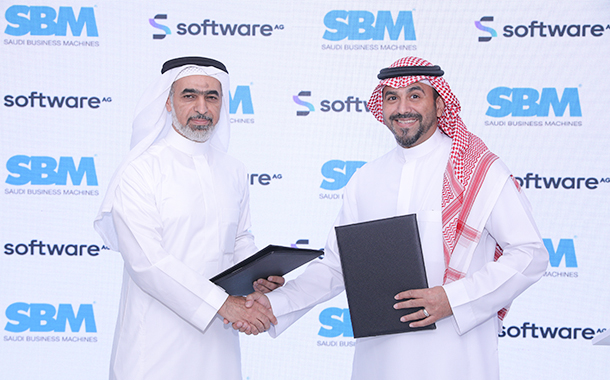The world of new-business building is highly industry-specific and even customer-specific. This means that probably the core value-generating software part needs to be developed by your own company – or by close partners. One issue with this new type of enterprise software is that it’s potential for standardisation is very low, perhaps even zero.
In contrast, traditional business software use cases like accounting are typically very well-defined and standardised in ERP packages.
Tesla is a car company in the way Apple is a phone company
A fundamental challenge for most enterprises is that they do not have or have lost the ability to create their own software in a scalable manner. Over the last decades, many IT organisations morphed into software operations teams with comparably low need for training to perform large software development projects.
This is a consequence of the huge success story of standardised business software, delivered by SAP, Oracle, Salesforce, and the like. In the early days of software, companies were building their own business applications on top of some basic technologies such as a database and an application-oriented programming language.
Successful industry players have been attacked by new companies that sourced their disruptive energy from software
In the past, we saw huge software development departments with deep knowledge and skills create some complex software. But this muscle vanished over time. Hence, the impact of the current wave of digital transformation means they need to train this muscle again, on an even higher level of mission criticality.
We saw huge software development departments with deep knowledge and skills create complex software
Building up experience and robust processes takes a lot of time and often involves a succession of failed projects. But the challenge is not only about internal abilities, it’s also about external threats. This is the race to digitalisation between industry incumbents who re-learn software and software companies mostly start-ups who learn an industry.
Amazon for example is not really a retailer; it is, was a software start-up that realised the potential of e-commerce, built a software platform, and taught itself how to sell books. It solved a technology challenge and learned enough industry knowledge.
The impact of the current wave of digital transformation means they need to train this muscle again
There is also a cultural dimension to that. Digital transformation can also radically change the relevance and importance of previously key roles in organisations. In the case of the catalogue retailers, for example, the role of the chief procurement officer, who decides which products make it into the catalogue and which do not. This decision heavily influenced commercial success. The role was recognised and held a lot of influence.
Amazon, the new iteration of a catalogue retailer, sells virtually everything. The role of the chief procurement officer has vanished overnight. New roles with entirely different skill profiles are created. The person who is responsible for the user experience of an online store website must understand and improve the way customers are searching and finding products.
Building up experience and robust processes takes a lot of time and often involves succession of failed projects
Another example is Tesla. A software company that taught itself how to build cars around a computer. From a car manufacturer’s view, these cars fall behind some of the traditional quality criteria, such as the legendary Spaltmass gap. Tesla cars may not live up to the traditional car standards but live up to managing the CO2 footprint and digital experiences inside the car.
Tesla is a car company in the way Apple is a phone company.
Successful industry players have been attacked by new companies that sourced their disruptive energy from software expertise. What does this mean for all the other industries? They too must build and leverage more software. To do this, they need to get a digital backbone.
What is Amazon really?
- Amazon is not really a retailer
- Amazon was a software start-up that realised the potential of e-commerce
- Amazon built a software platform and taught itself how to sell books
- Amazon solved a technology challenge and learned industry knowledge
Fundamentals of an enterprise digital backbone
- Leveraging data and leveraging new software that operates on this data
- Taking your core business and leveraging technology
- Doing it better, faster, cheaper, efficiently
- Stepping out of your core business
- Creating new models that did not exist previously
This is the race to digitalisation between industry incumbents who re-learn software and software companies mostly start-ups who learn an industry.



















